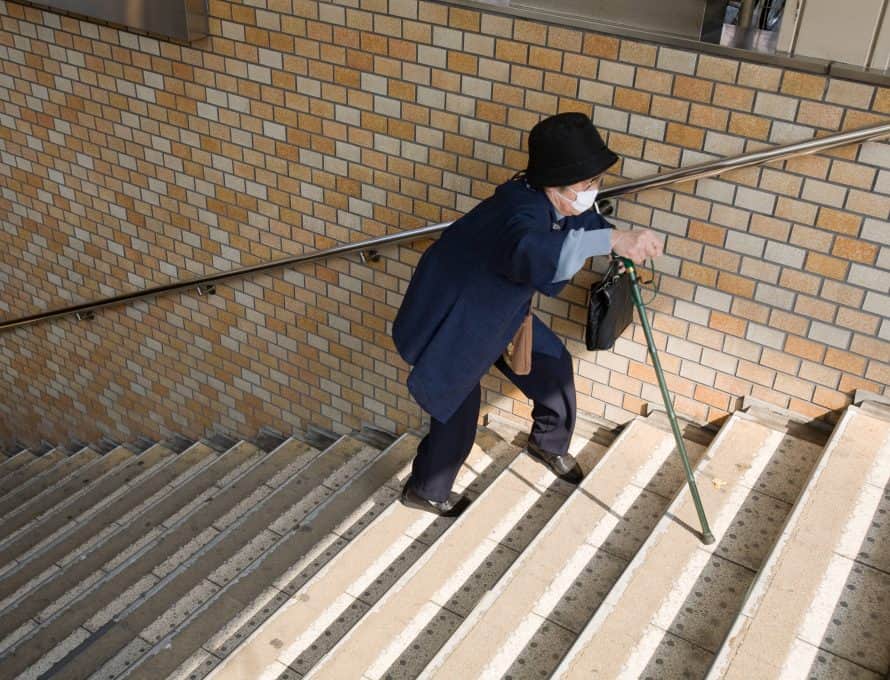Japan’s population is aging. Almost 30% of its population is 65 years old and older. This statistic is affecting church planting, church health and church growth. International Mission Board missionaries and Japanese Christians must answer the question, “Who will lead the next generation of believers?”
Scott Bradford, a missionary in Tokyo, said the average age of local pastors is between 60 and 70 years old. Many pastors are in their 80s and don’t feel they can retire because there is no one to assume the mantle, missionary Carlton Walker said. Carlton and his wife, Cornelia, also serve in Tokyo.
With aging pastors, Carlton, Bradford and other missionaries are asking, “What does that mean for the church in 20 years?”
Time is ticking, and the need is great for a younger generation of Christian leaders.
Missionaries are focusing on sharing the gospel in university areas, with the hopes of nurturing young adults who will fill church leadership positions and start churches in their communities. Journeymen on the Tokyo team are actively building relationships with university students, and many of their activities surrounding the Olympics involve outreach on campuses through 5-Minute English and virtual English outreaches.
While technology comes as second nature for Generation Z and Millennials, COVID-19 has been challenging for the older generation of Japanese pastors who’ve had to adapt to using technology and offer church services online.
Meeting online has been discouraging for some. As in the U.S., many congregations in Japan have gone more than a year and a half without taking the Lord’s Supper, going to Sunday School, attending prayer meetings or meeting in person, Carlton said.
However, pastors have adapted and have been able to extend their reach to younger audiences and to business professionals, who largely have been absent from churches.
“Before this, many churches were not really technologically knowledgeable,” Cornelia continued. “Many of them may have done videotapes to get to their older folks [who were homebound] but now they’re actually using their Facebook page, or they’re doing something on YouTube or Instagram, or they’re learning how to put themselves out there.”
However, Japanese pastors are concerned people won’t be motivated to attend in person once churches can meet in person again.
“Some pastors feel like they are going to have to begin from scratch,” Carlton said.
For older pastors, the thought of starting over is disheartening.
“[Pastors] are used to face-to-face shepherding, and many are weary,” he continued.
“Churches in Japan are facing the same thing that many churches in America are facing, and that is to realize, nowadays, you’ve got some people who absolutely want to get back together and see one another’s face,” Carlton explained.
This is especially true of the Walkers’ church, whose members are mostly older and prefer to meet in person. They recognize, however, the need to reach those who are comfortable connecting online.
Online services have allowed churches to connect with business professionals who, because of COVID-19, cannot go into their offices and have begun teleworking, working online from their hometowns.
This is exciting, Carlton said, because this population segment has largely been ‘missing in action’ in churches. Their work hours are often prohibitive to church attendance and involvement. Children stop coming to church when parents stop coming. This is a trend Christian leaders hope to reverse.
Journeymen are serving among the children-turned-adults of these business professionals who are now university students, but the students soon fade into the work world of late nights and long commutes, so maintaining contact with students after they graduate is key.
New church strategies
Bradford said they are asking themselves, “What are we doing to strengthen and encourage these churches, to support these churches toward health and come alongside and help them as they engage in their local community?”
Some of the recent ways missionaries are doing this is by prayerwalking in the neighborhoods around Baptist churches, setting up a mobile cart with an Olympic flag to attract attention, and sharing the gospel and distributing gospel materials near the churches.
The greater Tokyo area has a population of 37 million, and one-third of Japan’s population lives in the megacity.
“If we really did have every church that was healthy and filled to capacity, it still would not be enough to reach the 37 million people who are in this city,” Bradford said.
Walker said that even if each of their team members planted 50 churches, there still wouldn’t be a church within walking distance of everybody.
“What would happen if we had churches within walking distance of a 7-Eleven or a convenience store, a post office or a gasoline station? It would be so much more possible for the gospel to be shared, be believed and be known in Japan,” Walker said.
Their team is focusing on what they call catalytic work, coming alongside churches and bolstering their ministries, considering new locations and opportunities.
Though the numbers of those who don’t know Jesus are staggering and overwhelming, Carlton and Cornelia remain positive. The Walkers have served in Japan for almost 40 years and are nearing retirement.
Carlton said what has kept them upbeat amidst growing populations, aging pastors and, at times, slow church growth, is an attitude of gratitude. He wakes up every morning thrilled and in awe at the opportunity to serve among the Japanese. Gratitude makes all the difference, he says.
“God is doing something great in Japan, and I don’t want to die before I see it.”
###
Caroline Anderson writes for the IMB from Southeast Asia.

